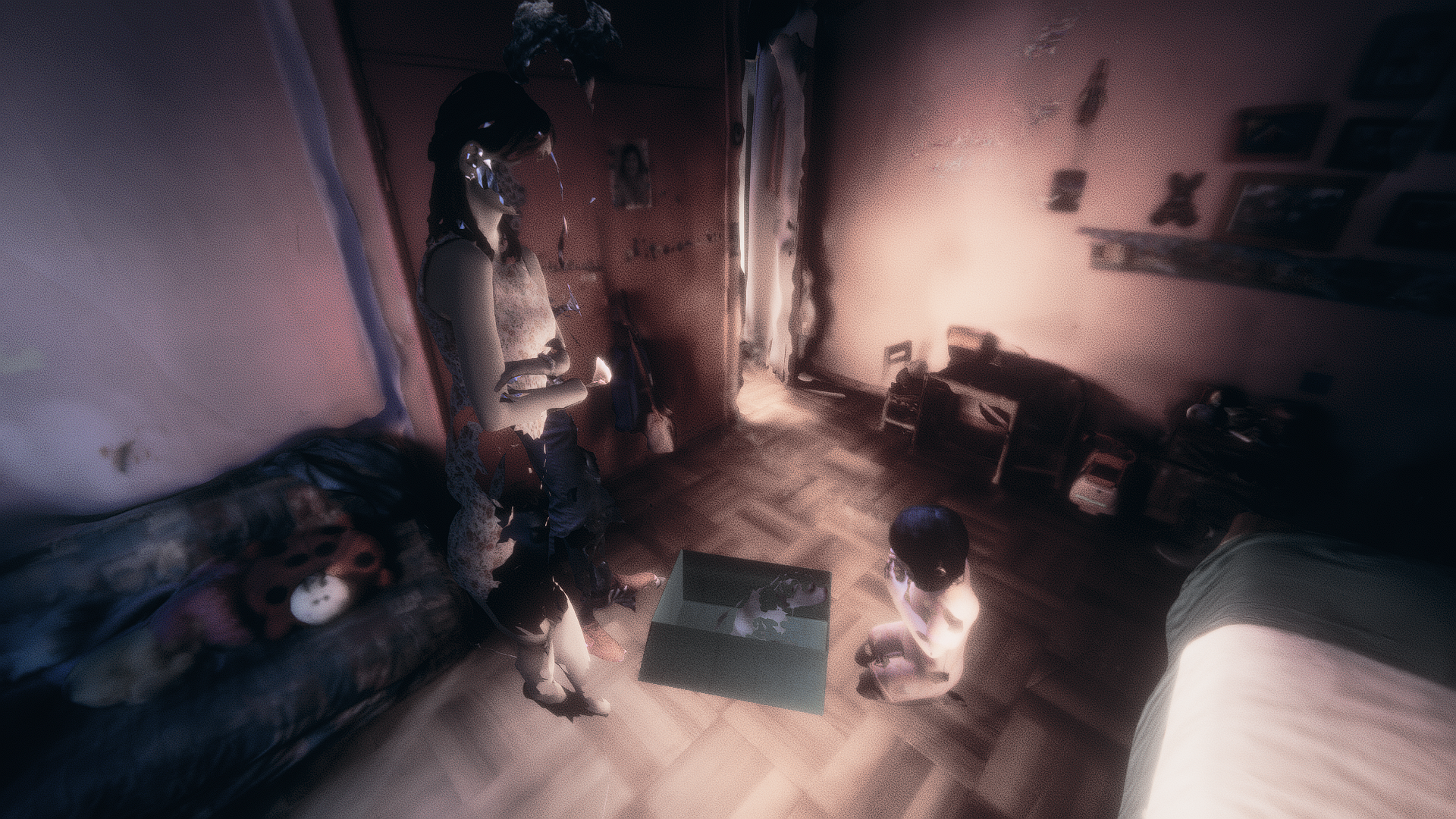Platform:
PC
Released:
October 15, 2020
Publisher:
Raw Fury
Developer:
Playmestudio
The Signifier would have caught my attention any day of the week, fascinated as I am about stories of mysteries, identity, and AI. Its concept about exploring the psyche of a woman who has died suspiciously through her memories is ambitious, but if pulled off correctly could result in a thought-provoking and powerful experience. By the end of the game, I wasn’t convinced they’d succeeded. But as a high school footballer once said before becoming a meme: they had us in the first half, I’m not gonna lie.
You play as Frederick Russell, the inventor of an experimental AI-powered machine that can visualise and play back people’s memories. He’s been pulled into a mysterious investigation about a woman’s death, and the story kicks off as you investigate her final memory of life. As the story progresses, more of her life becomes revealed to you, giving you access to memories from further in the past, and even dreams. At the same time, pressures from powerful companies and shady government agencies are counting on Russell to choose their side. While there are some mind investigative elements here, the majority of The Signifier involves exploring the woman’s (Johanna’s) mind, as well as some light puzzle solving.
I want to commend developer Playmestudio on their concept, in particular the memory sequences. Memories, of course, are never remembered perfectly, and these sequences demonstrate this by having the scene look glitchy, low-poly, and sometimes just a mess of colours and shapes. It looks somewhat like what you’d get if you took a panoramic series of photos and plugged them into a #D modelling software. The effect it creates is powerful, even unsettling when the tone calls for it. The vague shapes and distorted sounds are the perfect way to depict the unreliable nature of memories, and the way we remember specific places and sounds.

Memories are separated into an ‘objective’ state and a ‘subjective’ one, the latter state manifesting Johanna’s feelings and emotions within the memory. Often you’ll swap between the two states to solve puzzles. Even the most normal-seeming memory has a creepy air about it thanks to the distorted graphics and the context of exploring a dead woman’s mind. But it turns downright disturbing when Johanna’s shame and fear take physical shape within the simulation.
Most of the puzzles within the game are found within these sequences. They are kind of hit or miss – some solutions are very creative and require some out-of-the-box thinking, while others seem arbitrary and a little frustrating. A few of them fall into the trap of not triggering the solution because you were standing just a little too much to the left. It’s not enough to completely ruin the experience, and if that were the game’s only issue, it could be easily forgiven. But for a few different reasons, The Signifier falls short of living up to its promising potential.
The world of The Signifier is larger than the scope of the story itself – something I appreciate very much. Going on in the background is a fight between technological progress and regulation, in which Russell finds that Johanna’s death could have had something to do with her role within the tech giant she worked for. There is more going on with the world than Russell or even Johanna, but the story surrounds her circumstances and psyche. It allows the story and its mystery to be more focused and personal, rather than getting wrapped up in some global conspiracy. The story starts off strong, and seems to get stronger as the memory sequences reveal more about Johanna and her troubled life.
The cracks start to show when protagonist Russell seems incapable of portraying much emotion apart from polite friendliness and mild confusion. The voice acting overall is good, with everybody sounding natural enough. But there is a general lack of personality among the characters, with only a few exceptions. In such a small personal story, this is to its detriment.
“The Signifier falls short of living up to its promising potential.”
Secondly, while I remain impressed with the way Johanna’s psyche is slowly peeled away to discover more about her secrets, none of it goes anywhere. The ending of The Signifier devolves very suddenly into a bunch of vaguely-existential nonsense that draws almost nothing from the actual story you’ve played through thus far.
Existential themes are never an inherently bad thing, but you’ve got at least lay some groundwork before you start saying stuff like “It’s a shame, isn’t it, this marriage between complexity and time”. It feels disconnected from the rest of the story, and certainly doesn’t make for a satisfying end to the game.
The game is quite short, lasting only about 3-5 hours on your first playthrough. There was definitely room for the story to be expanded, leading me to believe that the sudden end to the story may have been the result of a lack of time or resources, rather than a lack of inspiration.
There were also some technical issues, despite my computer meeting the recommended requirements. The game crashed multiple times, on startup and between loading screens. The game autosave frequently so you’re not likely to lose progress, but it’s an annoyance nonetheless. There was also frequent clipping, when holding objects and just exploring the world.
5
Average
Positive:
- Fascinating concept
- Memory sequences are really cool
- Good mystery, barring the ending
Negative:
- Unsatisfying ending
- Overall experience doesn't live up to potential
- Lack of polish
The great ideas within The Signifier make it all the more frustrating when the overall experience doesn’t leave you with anything memorable. If it were expanded upon, the sum of its parts could make an amazing experience. The game has some shining moments in the memory sequences, but its ending does nothing with the fascinating threads offered up by its middle.





